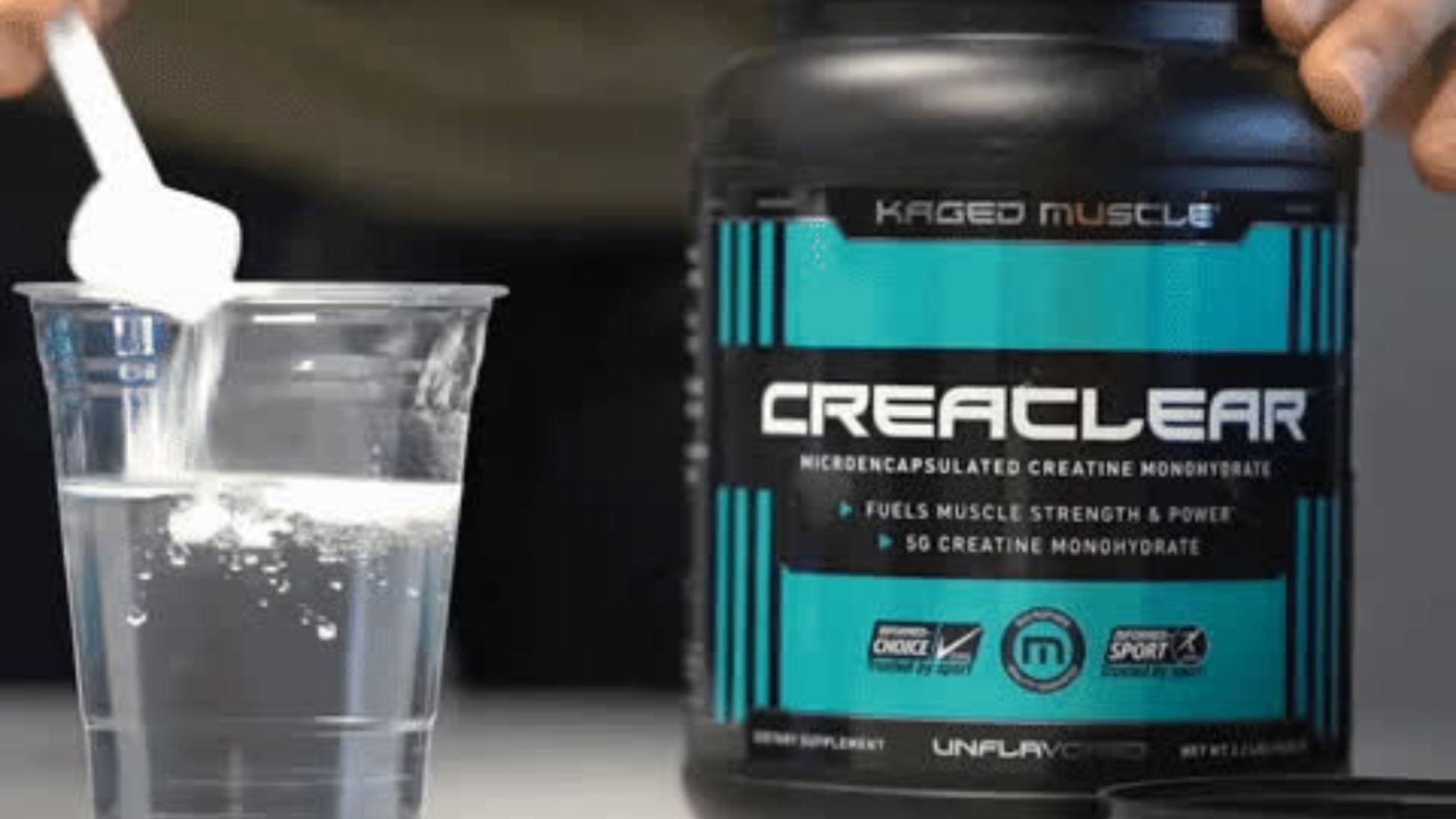As a gym-goer or an athlete, you may have heard about creatine and its potential to help you build muscle mass. One of the most debated questions is, “Will More Creatine Help You Build Muscle While Squatting?” In this article, we’ll dive into the science behind creatine supplementation and its effects on muscle building while squatting.
While there is some evidence that creatine supplementation may help increase muscle mass and strength, simply eating more creatine-rich foods is unlikely to have a significant impact on muscle growth.
When taken as a supplement, creatine can increase the amount of phosphocreatine in muscle cells, which can help to supply energy during short bursts of intense activity.
While creatine supplementation has been shown to have a modest effect on muscle growth and strength, it is important to note that it is not a magic bullet. In order to build muscle while squatting, it is essential to engage in regular resistance training, consume a balanced diet that is rich in protein and other nutrients, and get enough rest and recovery time.
Creatine supplementation may help.
Creatine is a naturally occurring substance that is found in meat and fish, and it plays an important role in providing energy to the muscles during high-intensity activities.
When we engage in activities like weightlifting and squatting, the muscles require a lot of energy to perform the work. Creatine can help to supply the muscles with the necessary energy to perform these activities effectively.
While consuming creatine-rich foods can provide some amount of creatine to the body, it is usually not enough to have a significant impact on muscle growth.
The amount of creatine found in food sources is relatively low, and it can be difficult to consume enough of these foods to achieve the desired effect.
On the other hand, creatine supplementation can provide a concentrated dose of creatine to the body, which can help to increase the amount of phosphocreatine stored in the muscles.
This increase in phosphocreatine can help to provide more energy to the muscles during high-intensity activities, which can lead to improved performance and increased muscle mass over time.
While eating creatine-rich foods can be a healthy addition to a balanced diet, it is unlikely to have a significant impact on muscle growth or performance during activities like weightlifting and squatting.
Creatine supplementation, on the other hand, can provide a more concentrated dose of creatine to the body, which can help to improve performance and increase muscle mass when combined with a proper training and nutrition program.
| Creatine Supplementation | Creatine-Rich Foods |
|---|---|
| Provides a concentrated dose of creatine to the body | May provide some amount of creatine, but not enough to have a significant impact on muscle growth |
| Can increase the amount of phosphocreatine stored in the muscles | The amount of creatine found in food sources is relatively low |
| Can help to provide more energy to the muscles during high-intensity activities | It can be difficult to consume enough creatine-rich foods to achieve the desired effect |
| Can lead to improved performance and increased muscle mass over time when combined with proper training and nutrition | Eating creatine-rich foods alone is unlikely to have a significant impact on muscle growth or performance |
Creatine is a naturally occurring compound.
Creatine can also be made from other amino acids. When we take creatine supplements, it can increase the amount of a substance called phosphocreatine that is stored in the muscles.
This increased amount of phosphocreatine can then be used to supply energy to the muscles during short, high-intensity activities like weightlifting or sprinting.
In other words, creatine supplementation can help to improve our ability to perform short, intense bursts of physical activity by providing our muscles with more energy.
This can lead to increased muscle strength and mass over time, especially when combined with a proper training and nutrition program.
It is important to note that the effects of creatine supplementation may vary from person to person, and it is always best to consult a healthcare professional or sports nutritionist before starting any new supplement regimen.
here’s a tabular summary of the key points about creatine supplementation:
| Attribute | Description |
|---|---|
| Natural compound | Creatine is naturally occurring in the body and can also be made from other amino acids. |
| Increased energy | Creatine supplementation increases the amount of phosphocreatine stored in muscles, which can supply energy for short, high-intensity activities. |
| Improved performance | Increased energy from creatine can improve performance in short, intense bursts of physical activity such as weightlifting or sprinting. |
| Muscle strength and mass | Over time, creatine supplementation combined with proper training and nutrition may lead to increased muscle strength and mass. |
| Individual variation | Effects of creatine supplementation can vary from person to person, so it’s best to consult a healthcare professional or sports nutritionist before starting any new supplement regimen. |
it is not a magic bullet.
Although creatine supplementation has been found to have some positive effects on muscle growth and strength, it is important to remember that it is not a magic solution for building muscle.
In order to effectively build muscle while squatting, it is essential to engage in regular resistance training exercises that challenge the muscles and stimulate growth.
In addition to resistance training, it is important to consume a balanced diet that is rich in protein and other essential nutrients that support muscle growth and recovery.
Protein is especially important for building and repairing muscle tissue, and consuming enough protein on a daily basis can help to support muscle growth and recovery.
Rest and recovery time are also essential components of building muscle. When we engage in resistance training exercises, we create tiny tears in the muscle fibers that need time to heal and repair.
Getting enough sleep and rest between workouts can help to support this healing process, which can lead to improved muscle growth and strength over time.
while creatine supplementation can be a useful addition to a comprehensive muscle-building program, it is not a substitute for regular resistance training, a balanced diet, and adequate rest and recovery time. By focusing on these key components, individuals can effectively build muscle while squatting and achieve their fitness goals.

here’s a chart table of essential protein and factors to take into account for muscle growth:
| Essential Protein | Description | Factors to take into account |
|---|---|---|
| Complete Protein | Contains all essential amino acids needed for muscle growth and repair. Examples include meat, fish, poultry, eggs, and dairy products. | Choose lean protein sources to avoid excess fat and calories. |
| Incomplete Protein | Lacks one or more essential amino acids. Examples include plant-based protein sources like beans, lentils, nuts, and grains. | Combine different incomplete protein sources to ensure all essential amino acids are consumed. |
| Protein Timing | Consuming protein before and after resistance training can support muscle growth and recovery. | Aim to consume protein within 30 minutes of finishing a workout. |
| Protein Quantity | The amount of protein needed varies depending on factors like body weight, activity level, and goals. | A general guideline is to consume 0.8 grams of protein per kilogram of body weight per day for sedentary individuals and up to 2 grams of protein per kilogram of body weight per day for athletes. |
| Protein Quality | The quality of protein sources can impact muscle growth and recovery. | Choose high-quality protein sources like lean meats, eggs, and dairy products. |
| Protein Supplements | Protein supplements like whey, casein, and soy protein can be a convenient way to increase protein intake. | Choose supplements from reputable brands and avoid excess consumption, which can lead to excess calorie intake. |
Final thoughts
Although consuming more creatine-rich foods may have some minor benefits, it should not be relied upon as a substitute for a well-rounded training and nutrition program.
If you are considering using creatine as a supplement, it is important to seek advice from a healthcare professional or qualified sports nutritionist to determine whether it is appropriate for your individual needs and goals.
While creatine supplementation has been found to have some positive effects on muscle growth and strength, it is not a one-size-fits-all solution, and the benefits may vary from person to person.
Additionally, it is important to ensure that the creatine supplement is of high quality and has been properly tested for safety and effectiveness.
By taking a comprehensive approach to muscle building that includes regular resistance training, a balanced diet, and adequate rest and recovery time, individuals can achieve their fitness goals and improve their overall health and well-being.
Here is a tabular breakdown of the key points:
| Aspect | Importance |
|---|---|
| Creatine | Naturally occurring compound found in meat and fish; can increase phosphocreatine in muscle cells for energy during high-intensity activities |
| Creatine Supplementation | Can have a modest effect on muscle growth and strength |
| Resistance Training | Regular engagement is essential for building muscle while squatting |
| Balanced Diet | Consuming enough protein and essential nutrients is crucial for muscle growth and recovery |
| Rest and Recovery | Adequate rest and recovery time is necessary for muscle repair and growth |
| Creatine-rich Foods | Consuming more creatine-rich foods alone is unlikely to have a significant impact on muscle growth |
| Creatine as a Supplement | Can be helpful in addition to a well-rounded muscle-building program, but should not be relied upon as a substitute |
| Consultation | It is important to consult with a healthcare professional or qualified sports nutritionist before starting creatine supplementation |
Conclusion
In conclusion, while creatine can be a useful supplement for individuals looking to improve their performance during high-intensity activities like squatting, it is important to remember that it is not a magic bullet for muscle growth and strength. Consuming more creatine-rich foods alone is unlikely to have a significant impact on muscle growth.
To effectively build muscle while squatting, it is important to engage in regular resistance training, consume a balanced diet that is rich in protein and other essential nutrients, and get enough rest and recovery time.
Creatine supplementation can be a helpful addition to a well-rounded muscle-building program, but it should not be relied upon as a substitute for these essential components.
If you are considering using creatine as a supplement, it is important to consult with a healthcare professional or qualified sports nutritionist to determine whether it is appropriate for your individual needs and goals. By taking a comprehensive approach to muscle building that includes a proper training and nutrition program, individuals can achieve their desired results and improve their overall health and fitness.

Hey there, it’s Mike Rrsq, the Editor-in-Chief over at Jsquat.com, and I’m absolutely obsessed with all things squat fitness! I’ve been lucky enough to get some serious recognition for my work in this field. With a solid background in the fitness and wellness industry, I’ve been there right from the get-go, helping shape this website into what it is today.
You see, I’m not just the boss around here; I’m also a passionate contributor. I love sharing my insights through my articles, and trust me, they’re not your run-of-the-mill stuff. Each piece I write is a labor of love, filled with my expertise and real-world experience in the fitness universe. So, if you’re into fitness and looking for some inspiration, you’re in the right place!

